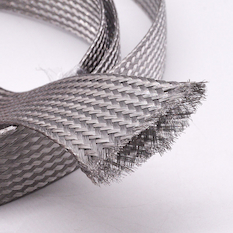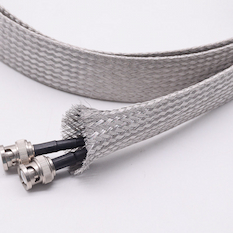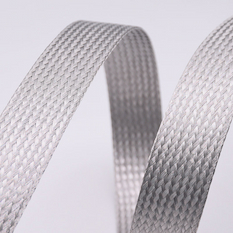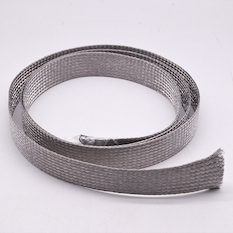In modern industry and electronic equipment manufacturing, electromagnetic interference (EMI) and radio frequency interference (RFI) are one of the main factors affecting circuit performance and signal stability. Wire shielding sleeves, as an important part of cable and harness protection, can effectively reduce external interference and improve circuit reliability. This article will introduce the main functions of shielding sleeves and their applications in different fields.
Our advantage

Reduce electromagnetic interference (EMI)
Electromagnetic interference can affect the normal operation of electronic equipment and even cause data loss or errors. Shielding sleeves are usually made of conductive materials (such as tinned copper braided sleeve, stainless steel braided sleeve, etc.), which can shield external electromagnetic fields and reduce interference to sensitive circuits.

Enhance signal integrity
In high-speed data transmission, signal attenuation and crosstalk are common problems. EMI braided cable shielding sleeve can provide an additional electromagnetic shielding layer, reduce signal attenuation and crosstalk, ensure stable signal transmission, and improve data integrity.

Prevent radio frequency interference (RFI)
RFI usually comes from wireless communication equipment, power lines or other high-frequency equipment. Shielding sleeves reduce the impact of RFI on sensitive electronic equipment by reducing the propagation of high-frequency noise, ensuring the normal operation of equipment.

Protect cables and harnesses
In addition to the shielding function, shielding sleeves can also provide additional physical protection to prevent cables from being damaged by friction, bending or external environmental factors (such as chemical corrosion, mechanical damage), thereby extending the service life of the cables.
Application areas of shielding sleeves
Due to the superior performance of shielding sleeves in electromagnetic shielding and physical protection, it is widely used in many industries, such as:
Communication industry: used for the protection of optical fiber, cable and data transmission lines to ensure stable signal transmission.
Automotive industry: reduce electromagnetic interference between electronic equipment and improve the electromagnetic compatibility of the whole vehicle.
Medical equipment: prevent external electromagnetic waves from affecting medical instruments to ensure accurate measurement and data transmission.
Industrial automation: protect control systems and sensors in high electromagnetic environments to ensure stable operation of industrial equipment.


